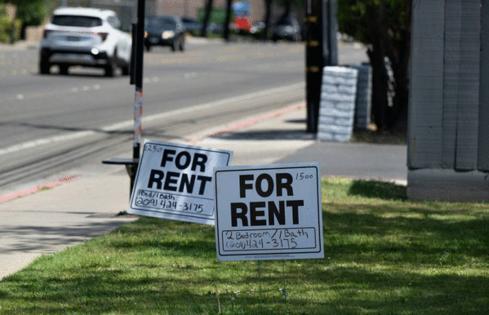Proposition 33 explained: What California's rent control ballot measure is asking you
Published in News & Features
SACRAMENTO, Calif. — Proposition 33 seeks to make it easier for cities to impose new rent control limits on more types of housing. If approved, it would repeal the Costa-Hawkins Rental Housing Act, a 1995 law that restricts rent control in California.
On its face, the measure is about the cost of housing. But it’s also an episode in a long-running series of battles waged by – and against – the AIDS Healthcare Foundation, a polarizing Los Angeles nonprofit.
This year’s Prop. 33 is the third attempt since 2018 by AIDS Healthcare Foundation President Michael Weinstein to repeal rent control limits through the ballot.
It faces opposition from pro-housing groups and some Democratic state lawmakers in California, who argue Prop. 33 could be abused by cities to block new housing development.
What a ‘yes’ vote means
A vote for Prop. 33 is a vote to repeal the Costa-Hawkins Act, which limits the types and scope of rent control local governments can impose
That means local governments would be able to set more rules to limit rent increases, and apply those rules to more types of properties, if Prop. 33 passes.
What a ‘no’ vote means
A vote against Prop. 33 is a vote to keep rent control laws as they currently stand in California.
If Prop. 33 fails, cities would continue to be banned from restricting rent increases on single-family housing or housing built after 1995, or whenever rent control was first enacted in that city. For example, rental units in San Francisco cannot be rent controlled unless they were built before 1979.
Supporters of Prop. 33
The AIDS Healthcare Foundation is the main proponent and financial backer of Prop. 33. The nonprofit has so far spent more than $14.8 million on the measure, according to campaign finance filings.
“The housing crisis is complex,” supporters wrote in official ballot arguments for the measure. “There isn’t one magic bullet to solve it but the place we have to start is keeping people in their homes. The only practical way to do it is to allow local government to enact and expand rent control because one size doesn’t fit all.”
Some anti-housing officials support Prop. 33, arguing it would give more power over housing laws to local governments, rather than the state.
Tony Strickland, a councilmember in Huntington Beach, a city that has often flouted state housing laws, embraced Prop. 33, saying it could be used “as a way to deny new housing development projects.”
Other supporters of Prop. 33 include:
•Sen. Bernie Sanders (I-Vermont)
•The California Democratic Party
•California Nurses Association
•California Alliance for Retired Americans
Opponents of Prop. 33
Opponents of Prop. 33 include the California Association of Realtors, which has funneled $27 million into a committee to defeat the measure.
Its critics call it a “Trojan Horse” that would overturn affordable housing laws and strip the state attorney general of powers to enforce housing laws.
They argue it could result in fewer new housing units being built in California, pointing to comments local officials like Strickland who have said Prop. 33 could help their cities block new housing developments.
In official ballot arguments, opponents also criticized Weinstein, president of the AIDs Healthcare Foundation, as a “notorious slumlord” with a “long record of health and safety violations and unfair evictions.”
Other opponents include:
•Senate President pro Tem Emeritus Toni Atkins (D-San Diego)
•Assemblywoman Buffy Wicks (D-Oakland)
•California Republican Party
•California Council for Affordable Housing
Fiscal impacts of Prop. 33
If approved, Prop. 33 would likely result in more rent control laws around the state. According to the nonpartisan Legislative Analyst’s Office, this could have a few downstream effects:
•People who live in rent-controlled properties would spend less on rent, while those who do not live in properties covered by rent control may pay more.
•Some landlords may decide to sell their properties rather than continuing to rent, resulting in fewer rental properties.
•Some renters may move less frequently
•The value of rental housing may decline if potential landlords do not want to pay as much for those properties with rent control limits.
The LAO notes many of those impacts depend on how many local rent control laws are changed and how much rents are limited, but would likely result in less revenue paid by property taxes, likely in the tens of millions of dollars annually. It would also increase local government costs – likely in the millions or tens of millions per year – to carry out new rental control laws.
____
©2024 The Sacramento Bee. Visit at sacbee.com. Distributed by Tribune Content Agency, LLC.







Comments